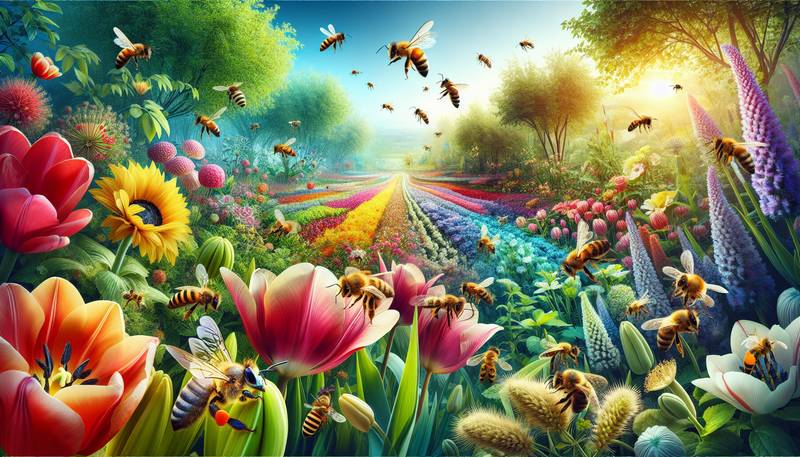Pollinator Pals: Creating a Buzz with a Bee-Friendly Garden

Welcome to the World of GardeningMost people imagine gardening as a peaceful pastime filled with flowers, sunshine, and maybe a few stubborn weeds that didn’t get the memo about being unwanted. But what many don’t realize is that cultivating a garden can also resemble a wild sitcom—complete with drama, unexpected plot twists, and characters like a raccoon or two, who think your tomatoes are a gourmet buffet. With a sprinkle of effort and a dash of creativity, turning your garden into a haven for pollinators can transform it from a simple plot of land into a buzzing paradise. And let’s face it—what better way to spend a Saturday than coaxing bees to do your bidding instead of cleaning out the garage?The Importance of PollinatorsOne might think of pollinators as nature's little helpers, and they really are! They play a crucial role in the ecosystem, ensuring plants reproduce and thrive. Without them, your morning smoothie might just be a sad blend of yogurt and disappointment instead of a vibrant concoction of fruit. Pollinators include more than just bees. Think butterflies, hummingbirds, and even some pesky bats. They are the unsung heroes of the garden world, working tirelessly while we lounge around wondering why our zucchini hasn’t produced a single veggie yet. Choosing the Right PlantsWhen crafting a bee-friendly garden, plant selection is akin to choosing the right cast for a blockbuster movie. You want variety, charisma, and the ability to work well together. Here’s a list of plants that’ll get the pollinators buzzing with enthusiasm: - Lavender – because who doesn’t want to feel like they’re in a French countryside dream?
- Echinacea – also known as coneflower, it’s like a cheerleader for pollinators.
- Sunflowers – they stand tall like optimistic little soldiers, attracting all the right attention.
- Butterfly bush – an obvious choice, given its name, but also effective at attracting more than just butterflies.
- Mint – not just for mojitos, it’s a favorite among various critters seeking refreshment.
The more plant diversity you incorporate, the better chance you have of providing a buffet of options for every winged friend. However, avoid anything that resembles a “don’t touch me” plant. The aim is to make your garden a hotspot, not a no-fly zone.Creating HabitatsPollinators aren’t just looking for a meal; they’re also in the market for a cozy home. Adding small habitats can be the equivalent of opening a bed-and-breakfast for bees. Here are a few ideas to make your garden a home sweet home for pollinators: - Leave some corners of your garden a little wild—think of it as nature’s version of a messy bun.
- Install bee houses—tiny condos for solitary bees that offer no maintenance fees.
- Build a small rock pile or log pile to provide shelter for various insects—like their very own five-star hotel.
By providing these spaces, you’re not just welcoming your pollinator pals; you’re also giving them a chance to settle down, throw parties, and raise their families. Water Sources: A Splash of LifeJust like a sitcom needs a great setting, pollinators need water. A simple shallow dish filled with water and some pebbles can become a local watering hole, where bees can gather without the fear of going for a swim or drowning in a dramatic plot twist. Make sure to change the water regularly, as you want to avoid creating a mosquito spa. Remember, mosquitoes are the unwelcome guests at your garden party—they suck the joy out of everything!Buzzing Off with a MissionCreating a bee-friendly garden is not just about aesthetics; it’s about supporting the environment while having a little fun. Who knew that encouraging a swarm of bees could be both a noble cause and an entertaining hobby? Start with small changes; you don’t need to transform the entire backyard in one afternoon. Like any good story, building a thriving garden takes time, effort, and a bit of patience. But as the flowers bloom and pollinators flock to your little paradise, you’ll find it’s all worth it! As your garden flourishes, with all its buzzing activity, you'll realize that those pollinators may just be the best wingmen in your quest for a vibrant garden. In the end, you’ll be the proud host of your very own “bee-utopia,” where every flower is your ally, and the birds and bees are indeed living harmoniously!
|
|







